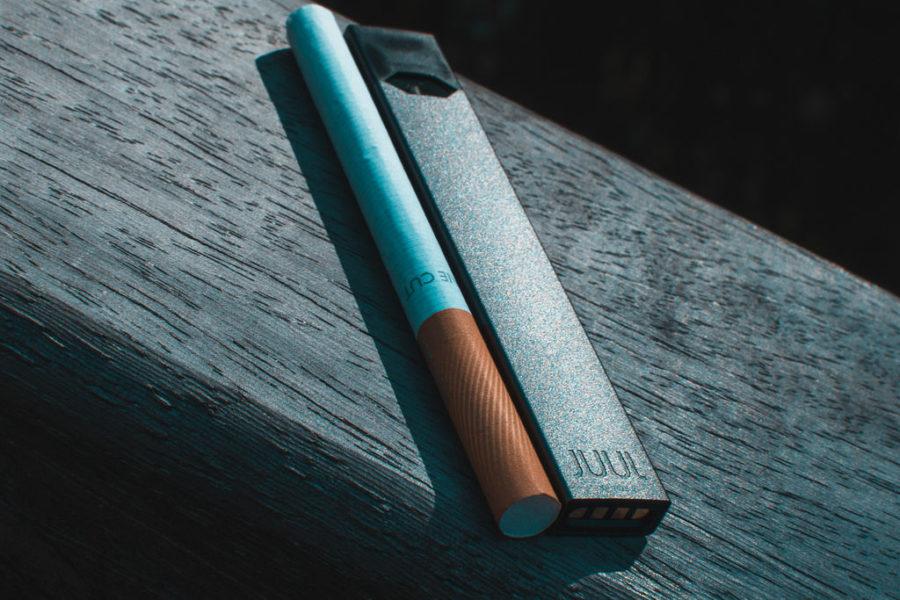Bahr: Vaping ban won’t lessen underage nicotine use
Juuling is among the newest additions in the continuing trend of e-cigarette products being promoted as a healthier option than smoking actual cigarettes.
September 16, 2019
Earlier this week, Donald Trump announced his decision to pursue a nationwide ban on flavored e-cigarettes. This call for a ban likely stems from the recent deaths due to vaping that have been hitting the news. However, I believe there are many aspects of this situation that need to be cleared up before an all-out ban on flavored tobacco products should be pursued.
First, the actual circumstances of the deaths. The president and most of the news outlets are simply referring to them as vaping deaths and, while they were connected to vaping, the vast majority of the deaths were not related to nicotine vaping.
According to the CDC, about 80 percent of the victims said they were smoking THC-containing cannabis products. Keep in mind, this is only the percentage of victims who admitted to smoking an illegal substance to a government organization, so that number is likely higher than 80 percent. The FDA says that most of the liquids that the victims were smoking contained vitamin E acetate and were likely obtained via the black market. This means that there already is no regulation for these products. We can see, then, that the deaths were not only not caused by nicotine products, but by black market cannabis products.
Second, let us pretend that the deaths that acted as a catalyst for this policy did come from regulated nicotine products. Trump’s plan is to ban all flavored e-liquids in an attempt to dissuade younger kids from vaping, as seen by Melania Trump’s tweets the day prior to the announcement stating that, “I am deeply concerned about the growing epidemic of e-cigarette use in our children.”
Juul and other vape companies have been accused for years of marketing to underage kids, and I just don’t buy it. Sure, I think a lot of underage teenagers gravitate toward Juuls and other e-cigarettes, but in the same way that kids in the 50s gravitated toward cigarettes. Making something taste good doesn’t inherently mean you are marketing toward children. If so, we should ban all fruity alcoholic drinks, because kids might be drawn to them instead of straight alcohol.
That brings me to my next point. Banning flavored e-liquids will just make people move toward buying real cigarettes or just continue to buy only the tobacco flavored ones. Even worse, it could persuade people to look into black market liquids like the ones that caused the deaths mentioned above. It’s not the flavoring that makes kids want to smoke or vape — it’s the social act of defying parents’ wishes and looking cool while doing it. When Juul came out, it became a trend, not because it tasted like peaches, but because it was what everyone else was doing.
Banning flavored liquid will not lessen underage nicotine use, and it could lead to young people trying more dangerous products. It also won’t stop the vaping-related deaths that have been occurring lately because the liquids used in those deaths were likely black market cannabis products, which added regulation of nicotine products is going to do nothing about.

















